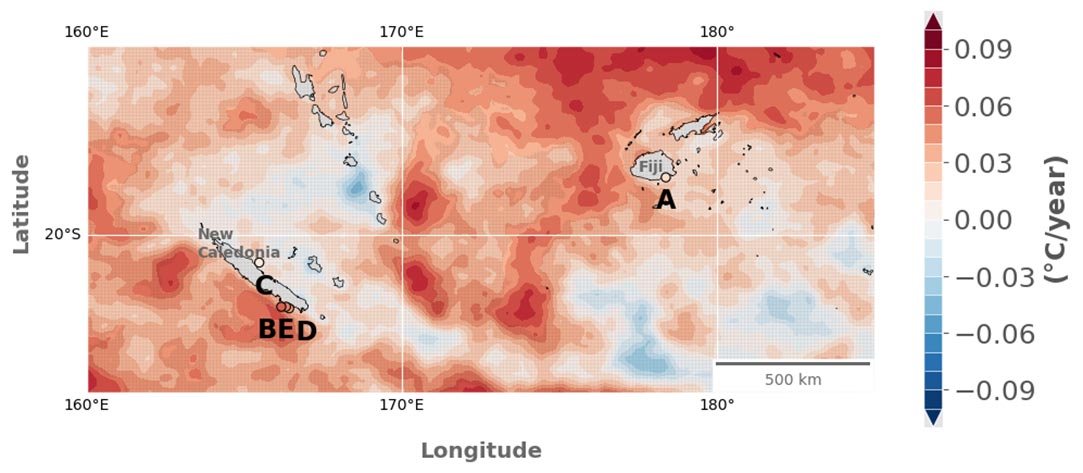
Authors: Alexandre Ganachaud, Karina von Schuckmann, Andra Whiteside, Cécile Dupouy, Pierre-Yves Le Meur, MaevaMonier, Simon Van Wynsberge, Antoine de Ramon N’Yeurt, Maria Mañez Costa, Jérôme Aucan, Annette Breckwolds, Louis Celliers, Pascal Douillet, Sebastian Ferse, Elisabeth Holland, Heath Kelsey, Vandhna Kumar, Simon Nicol, MarajaRiechers, Awnesh Singh, David Varillon
Accepted in Copernicus Ocean State Report, issue 6, Journal of Operational Oceanography, 2022
The ocean is an integral part for the three pillars of sustainable development: environment, society and economy. Pressures on the ocean from climate change, pollution, and over exploitation have increased over the past decades, posing unprecedented challenges, particularly for vulnerable communities such as the Large Ocean Island States, and these pressures need to be monitored. This study analyses time series of Essential Ocean Variables sea surface temperature and chlorophyll-a in coastal reefs of two pilot regions in Fiji and New Caledonia. In situ measurements represent true local conditions, with a necessarily limited coverage in time and space. Remote sensing data have a broad coverage but are necessarily limited in terms of resolution and accuracy in the coastal zone. Our analysis points to the advantage in using these complementary data types for the same geographical areas at small spatial scales close to the coast, and in particular, for high frequencies and extreme events. We discuss the way forwardfor a co-constructed monitoring framework, drawing on ongoing initiativesin Oceania, and advocate a methodology for the use of ocean data to support society and economy. Co-construction with stakeholder involvement is paramount for this framework, including policy- and decision-makers, industry, scientists, local and indigenous, governmental and non-governmentalorganizations, all of whom need sound, multi-disciplinary science advice, targeted expertise, and reliable evidence-based information to make informed timely decisions for the right timescale. Such transdisciplinaritycombines scientific, traditional, administrative, technical, and legal knowledge repertories.